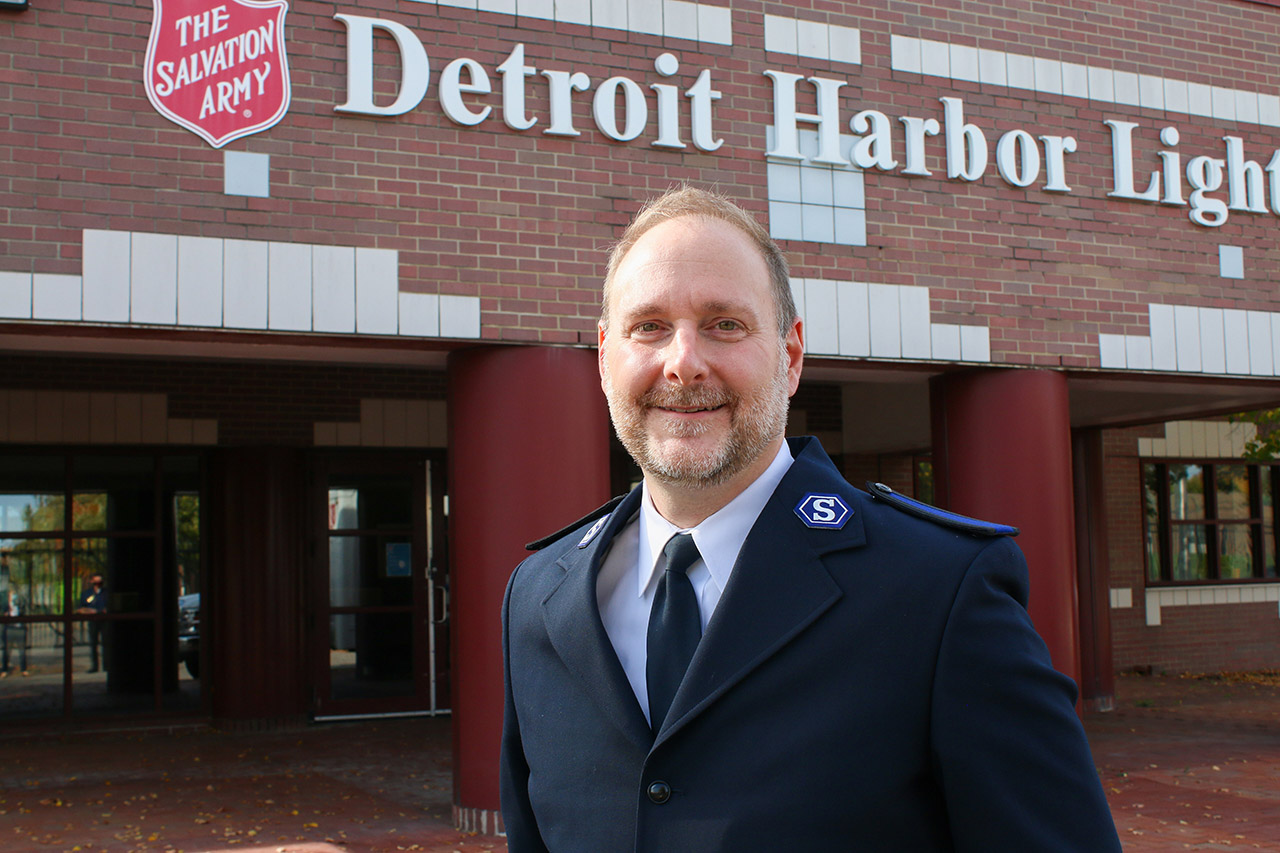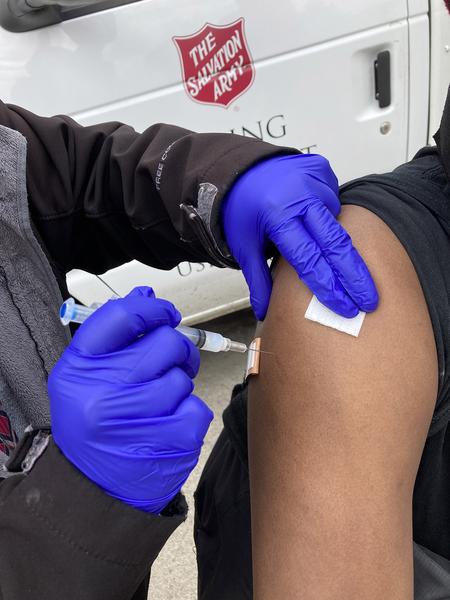Salvation Army Continues Community Efforts by Distributing COVID-19 Vaccines
As mask orders and restrictions continue to be lifted, the Salvation Army is working with the Michigan Department of Health and Human Services and Central City Integrated Health to distribute vaccinations.

The Salvation Army Bed and Bread mobile unit has been in action for years, helping the most vulnerable populations in the state. The trucks usually provide educational material, food and other necessary support, but the pandemic has changed the services being offered.
As mask orders and restrictions continue to be lifted, the Salvation Army is working with the Michigan Department of Health and Human Services and Central City Integrated Health to distribute vaccinations.
Jamie Winkler is the executive director of the Salvation Army Eastern Michigan Harbor Light System. He spoke with WDET’s Tia Graham about the organization’s efforts to inoculate the people they serve.
Listen: Jamie Winkler of the Salvation Army on how the pandemic was a “crisis on a crisis” for the city’s most vulnerable communities.
Jamie Winkler, Executive Director of the Salvation Army Eastern Michigan Harbor Light System: Well, it all started with conversations with the Salvation Army and Elizabeth Hertel, and the Michigan Department of Health and Human Services, about working together to reach out to the most disadvantaged and underserved populations in Detroit and our commitment to bringing the vaccine and to educate and answer questions that people have. And so together, we are working with Central City Integrated Health to make all of that a reality.

WDET’s Tia Graham: So with all the information swirling out there, I’m especially for those who may not have direct access to information. How have you commented on vaccine hesitancy among the people that you’re serving in the community?
Winkler: Yes, that’s, that’s a very good point. And, you know, unfortunately, the Black community has struggled with trusting the medical system. And unfortunately, there is some hesitancy about the vaccine, and people are scared, and they’re in a bit of a quandary, because on one hand, they’re scared about, about getting COVID. And on the other other hand, they’re a bit hesitant to take the vaccine and, and so with our partnership with the Department of Health and Human Services, and working very closely with Central City Integrated Health, we’re providing a very high level of education. And we are answering people’s questions, you know, when they are hesitant, and they said, “No, I’m not, I’m not ready for that.” We go a little bit deeper with them. And we ask them, you know, what, what needs to change for them to make a decision to take the vaccine. And so they’ll present their questions, and it gives us an opportunity to answer that.
Graham: COVID-19 did a lot of things. It highlighted several gaps and holes. So what did COVID-19 highlight in terms of the work that you do you all do in the community?
Winkler: Well, the reality of it is there’re approximately 11,000 homeless individuals in the city of Detroit, and only 1,900 shelter beds. There’s a significant gap there. And unfortunately, COVID-19 is really a crisis on a crisis that’s already been there for our homeless population. And so for the homeless community and where they have found shelter in the past, and businesses or bus terminals or, or other places that they found shelter. Those doors have been locked and people have been displaced. And so the reality of it is … the most vulnerable have been greatly displaced and they’ve had to be very unique and creative in their ways of finding shelter. And the Salvation Army has been very committed to going out and doing things differently, to reach this population to minister to them to provide basic human needs during the winter providing sleeping bags and blankets and warm clothing, as well as bridging people from homelessness into emergency shelter beds.
“Well, the reality of it is there’re approximately 11,000 homeless individuals in the city of Detroit, and only 1,900 shelter beds. There’s a significant gap there.” –Jamie Winkler, Salvation Army
Graham: With everything happening right now governor Gretchen Whitmer lifting certain restrictions, mass restrictions, as well we see that younger people 12 to 15 can be vaccinated now. How does this change your approach as you go forward through the summer?
Winkler: Well, I have to tell you, the Salvation Army and our partnership with the Michigan Department Health and Human Services and Central City Integrated Health, we’re here for the long run. So right now the vaccine has had a very strong emphasis on our adult population. And now as we go into the next wave of offering the vaccine to to our youth, we’re in it for the long haul.
Trusted, accurate, up-to-date
WDET is here to keep you informed on essential information, news and resources related to COVID-19.
This is a stressful, insecure time for many. So it’s more important than ever for you, our listeners and readers, who are able to donate to keep supporting WDET’s mission. Please make a gift today.
